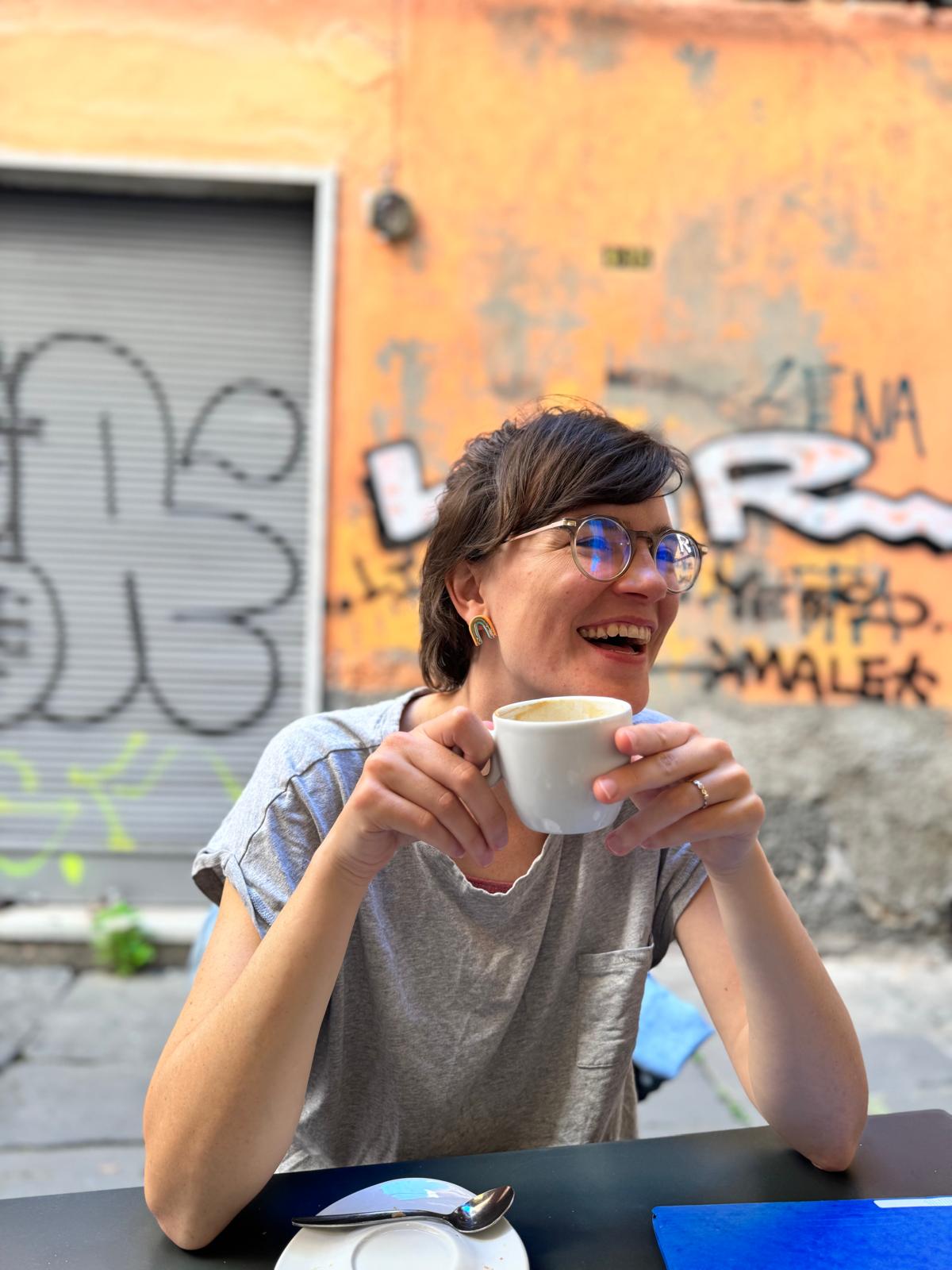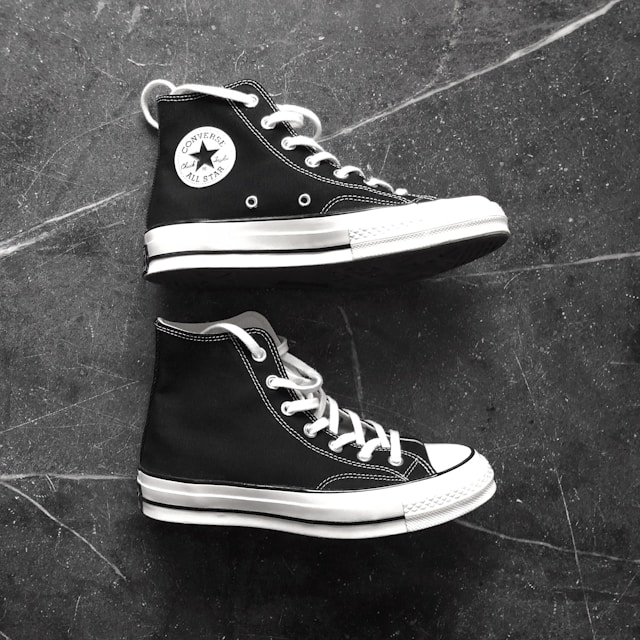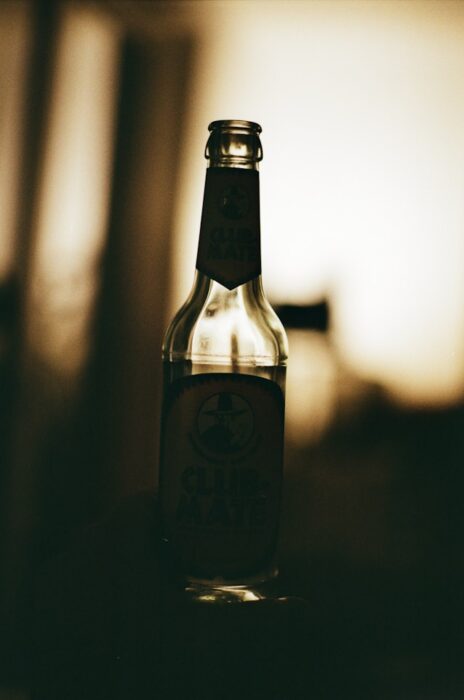Unfaithful
“We won’t be seeing Grandpa anymore,” Dad said. His Texas Ranger mustache twitched, as if it regretted letting the words out of his mouth.
Sophia and I stopped mid-scene. Our dolls had just arrived in Ravensbruck. We’d shaved their heads, though we hadn’t decided who would die of typhus yet. That was ruined now.
I turned to Dad, a question bubbling in my throat, but Sophia asked it first: “Why?”
He motioned for us to sit on the stained couch. I took my time setting my doll back onto the miniature bed with the striped quilt that Mom and I had selected from Hobby Lobby. I knew that what Dad was about to say was going to make me sad. And there were already so many things to be sad about, like my ex-best friend telling me she wanted to decapitate me when we were waiting in line for recess. Why add to that hurt?
On the way to the couch, Sophia let her doll fall to the floor, answering my question of who the victim of typhus would be. Her hand hung empty only seconds before she took mine, squeezing it. It didn’t matter if she was younger than me. She knew how to make me feel safe.
Mom patted the cushions beside her, our Newfoundland Samson wagging his shaggy tail at her feet—a living carpet. He was the reason we spent so much time in the unfinished basement, since my parents didn’t want him roaming around the rest of the house.
“Grandpa’s being unfaithful to Grandma,” Dad continued, still standing. His arms were widespread, in sermon mode.
Unfaithful. I knew the word didn’t mean what I’d initially thought—that he’d stopped believing in Jesus. It wasn’t directly linked to his relationship with God, if such a thing were possible. After all, everything we did was a reflection of our religious commitment.
Grandpa had done something bad. Something sinful.
I shivered. Being sinful meant choosing Satan’s ways over God’s, inviting demons to come to class with you and share your bed. Their talons would pierce your skull, claiming you, forcing you do things you’d never want to do otherwise. They’d make you wear skirts that were too short and provocative lipstick, tempting every boy who passed. They’d lead you down a dark alley where one of those boys would have his way with you (whatever that meant), and then guide you to the abortion clinic where you’d murder your unborn child. They’d make you steal and lie and cheat and kill, giving the devil glory. And then, in a grand finale, when you drew your last breath, they’d drag you to hell, charring your flesh forever and always.
That was why, every night, I prayed for God’s forgiveness for wanting Josiah to ask me to play his wife at recess.
Dad’s word echoed inside me: unfaithful. Did this mean Grandpa was going to hell?
Grandpa was a deacon at his local church. He sent me cards and presents for my birthday and Christmas. He took me to the zoo and the aquarium when he came to Missouri, and he’d even made an appearance on Grandparents’ Day at my school. For once, I hadn’t been one of the kids who had to watch the others celebrate. For once, I’d felt special.
But that was my vanity talking. And vanity was a sin.
Dad reminded us of Hebrews 13:4: “Give honor to marriage, and remain faithful to one another in marriage.”
What had Grandpa done for Dad to deem him unworthy of our presence?
We knew Grandma was in a nursing home bed in Kentucky, forgetting how to eat. All I could recall of that place was a shriveled woman with white hair surrounded by an impenetrable barricade of R2-D2-like machines. My secret fear that those machines had a mind of their own, that they were holding Grandma there against her will. The smell of bleach and pee. The whiteness of the walls, dust motes twirling in the few rays of light that dared to peek in through the window. She’d first called Dad “Simon,” his brother’s name. Then “Bill,” but nobody knew who that was.
Back in the basement, Dad told us that Grandpa was living with a younger woman named Juliette, who was half his age. “He’s concocted this scheme,” Dad said, turning to face Mom. “Telling everybody she’s his caretaker.”
Mom nodded. It wasn’t her place to comment further, but I still found myself wondering what she thought about Dad’s decision.
In the wall behind us, a pipe shuddered. I stared at the rippled pattern on one of the wooden panels, my eyes tracing it over and over again, willing it to take the feelings of helplessness from me, while Sophia threw her glasses across the room and wailed from her spot on the couch. The sound of Samson’s tongue lapping salt from Sophia’s face, as I thought there had been worse things in the world than this. The Trail of Tears. Kids dying of AIDS in Africa. Jesus being nailed to a cross. Dad was making this sacrifice, because it was the right thing to do. I scratched the stress-induced hives on my arms until they bled, but I couldn’t cry. Someone had to be strong. There couldn’t be two typhus-ridden dolls in this scenario.
After that day, Dad started writing letters to Grandpa, weaponizing the same cramped handwriting that made up his sermons, and that appeared in occasional notes to Sophia and me when we got good grades or won spelling bees. Sometimes, he’d read these letters out to Mom, not noticing or not caring that Sophia and I were in the next room, or at the other end of the kitchen table. So many fancy formulations with subordinate clauses and antecedents. So many clever ways of saying I’m right, you’re wrong.
When Grandma finally forgot how to swallow, Juliette became Grandpa’s wife. Years later, Dad made several trips to Kentucky to see him, realizing his father was about to die from repeated heart attacks and the love of candy.
Dad asked me if I wanted to go with him, and I refused, telling him I had tests coming up. But that wasn’t really the reason. At the time, I wouldn’t have been able to put it into words, but this is how I understand it now: it was too inconsistent. Dad’s narrative had told me to cut out my love for Grandpa like gangrene on a festering wound. If I didn’t, I risked infection. The condition for our love was to never put our own faith at risk—to never be unfaithful to God.
Grandpa had become one of the scapegoats for my lonely childhood—yet another family member missing at Thanksgiving dinner. He lived so far away that he’d always been a shadowy figure. He’d never been someone I could call up when I wasn’t feeling well or to share my successes. And I was so young that it had been easy to blame him for making Dad miserable.
Blaming Dad would’ve meant much more. It would’ve meant acknowledging the hypocrisy that had formed my existence: that loving like Jesus doesn’t always look like kindness and inclusion. It can mean tough love. It can mean conditions.
Sophia agreed to go with Dad to Kentucky. Each time after the eight-hour drive back, he would sigh deeper sighs of relief, providing us with progress reports. Grandpa was still going to church, and tithing after all those years. Juliette served the best sweet tea in the county, and had made sure that a framed photograph of each of the children and grandchildren had a place of honor on the living room wall, despite years of glacial silence from some of them. This was somehow sufficient to debunk any preconceived myths of gold digging that Dad may have been nursing. It was almost enough for Sophia and me to regret a particularly vicious season of parody Christmas caroling, where the “grandma” in “Grandma Got Run Over by a Reindeer” was replaced by “Juliette.”
Maybe Grandpa would find his way back to Jesus after all. Morning, noon, and night we joined hands in prayer for him before eating pancakes, mashed potatoes, corn on the cob and ham. Dad dipped back into some of his earlier memories, telling us stories of his father’s stationary business before it became an ice cream parlor. Of all the pencils he’d ordered with the family name on them—marketing before its time. Of when Grandpa was in the military, stationed in Korea and Germany. Dad told us how proud his mother had been to bring back an entire set of rosebud china after a year spent in Dusseldorf, without a single saucer breaking.
I didn’t say goodbye to Grandpa, because admitting that I wanted to would’ve been one of the first cracks in the shiny façade I’d spent so much time sanding and polishing—the façade of my father always being right. I desperately wanted to pretend Dad would always be there for me, no matter what. That he would love me and support me and speak to me, without conditions. But that was not the love he had taught me to know.
When Grandpa died, I couldn’t forgive him for the sadness he’d caused my family. I hadn’t realized he’d had just as much reason to be sad as I did. I didn’t ever think about a man who had been prevented from seeing his grandchildren. Who had received accusatory mail from his own son, calling him an adulterer. A liar. A sinner. Never had I tried to imagine an old man alone with his wife’s suffering, crushed under the weight of it.
I hadn’t realized Grandpa wasn’t the true target of my anger.
Weeks after the funeral, Dad received a letter signed by Juliette. Enclosed was a check for 150 dollars. His inheritance, which represented barely a few boxes of pencils when it came to the stationary empire. He found out later that his siblings had received much more.
In the letter, Juliette explained that Grandpa wanted Dad to know he’d never forgotten him, but he’d also never forgotten the letters in which his son claimed he’d turned his back on God. Dad didn’t show any emotion after reading that letter, aside from a clenched jaw and bowed head. He decided to split the inheritance between his daughters. I got my first pair of Converse with my share. They were black with neon-pink trim and laces. I wore them on my first day of high school. On my first date. I wore them even when I started to doubt my parents’ faith, until they were scuffed, skidded, and hole-ridden. And then I threw them into a heavy-duty trash bag, knotting it at the top. I didn’t watch the garbage truck take them away.

Michelle Crowell is an American writer and educator living in Nantes, France. Her writing has appeared in Anti-Heroin Chic. When she’s not writing, she’s busy playing with Peanut, her Ewok-like tortoiseshell cat, whose tortitude would cause even the fiercest of Stormtroopers to hightail it back to the Death Star.



